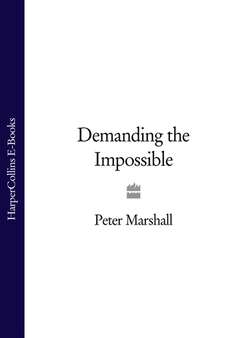Читать книгу Demanding the Impossible - Peter Marshall - Страница 41
Edmund Burke
ОглавлениеSince most literary historians cannot understand the feasibility of anarchism, they invariably suggest that works by great authors advocating a free society must be ironic. This is the case with Swift, and Edmund Burke. Burke has been best remembered for his attack on all innovation in his Reflections on the Revolution in France (1790), but it is often forgotten that as a young man he was a liberal Whig who supported American Independence and advocated economic reform. In addition, he wrote A Vindication of Natural Society (1756) which offers one of the most powerful arguments for anarchist society made in the eighteenth century. His starting-point, which he shares with the Taoists and the French philosophes, is a confidence in nature which ‘if left to itself were the best and surest Guide’.13
Human beings in a state of nature originally lived ‘with their Brethren of the other Kinds in much equality’ and were wholly vegetarian. In the ‘natural’ society in which they lived, they followed their ‘natural Appetities and Instincts, and not in any positive institution’. Governed by reason, they had no need for external government: ‘We begin to think and to act from Reason and Nature alone.’14 Unfortunately, human beings invented artificial rules to guide nature. They created a political society held together by laws which became a violation of nature and a constraint on the mind. Since religion and government are closely connected, once government is considered to be necessary, it draws in an artificial religion and ‘Ecclesiastical Tyranny under the Name of Church Government’.15
Political regulations, Burke further suggests, create social conflict, and political society is responsible for war since in the state of nature it is impossible to form armies; thus ‘All Empires have been cemented in Blood.’ The artificial division of mankind into separate groups further produces hatred and dissension. And while in the state of nature man acquires wealth in proportion to his labours, in the state of artificial society with government it is an invariable law that ‘those who labour most, enjoy the fewest things; and that those who labour not at all, have the Greatest Number of Enjoyments.’16
Burke examines the different forms of government – despotism, aristocracy, and democracy – but finds them all wanting. Although democracy is preferable, he argues that all governments must frequently infringe justice to support themselves. He therefore draws the anarchist conclusion: ‘In vain you tell me that Artificial Government is good, but that I fall out only with the Abuse. The Thing! The Thing itself is the Abuse!’ Rejecting all artificial laws and the alliance of Church and State, Burke declares at the end of his eloquent and penetrating work: ‘We should renounce their “Dreams of Society”, together with their Visions of Religion, and vindicate ourselves into perfect liberty.’17
When Burke became a Tory after the French Revolution and thundered against all improvement, he disowned his Vindication of Natural Society as a youthful folly. Most commentators have followed suit, suggesting that he was trying to parody the manner of Bolingbroke. But Godwin, while recognizing Burke’s ironic intention, took him seriously. He acknowledged that most of his own arguments against political society in An Enquiry concerning Political Justice (1793) may be found in Burke’s work—‘a treatise, in which the evils of the existing political institutions are displayed with incomparable force of reasoning and lustre of eloquence’.18 In the following century, the radical secularist George Holyoake reprinted Burke’s work under the tide The Inherent Evils of all State Governments Demonstrated (1858). The editor declared enthusiastically that it was ‘one of the soberest productions ever-written’ and referred in an appendix to the anarchists Pierre-Joseph Proudhon and Josiah Warren for further clarification of Burke’s ‘great truth that State governments will never give real freedom to their subjects’.19
